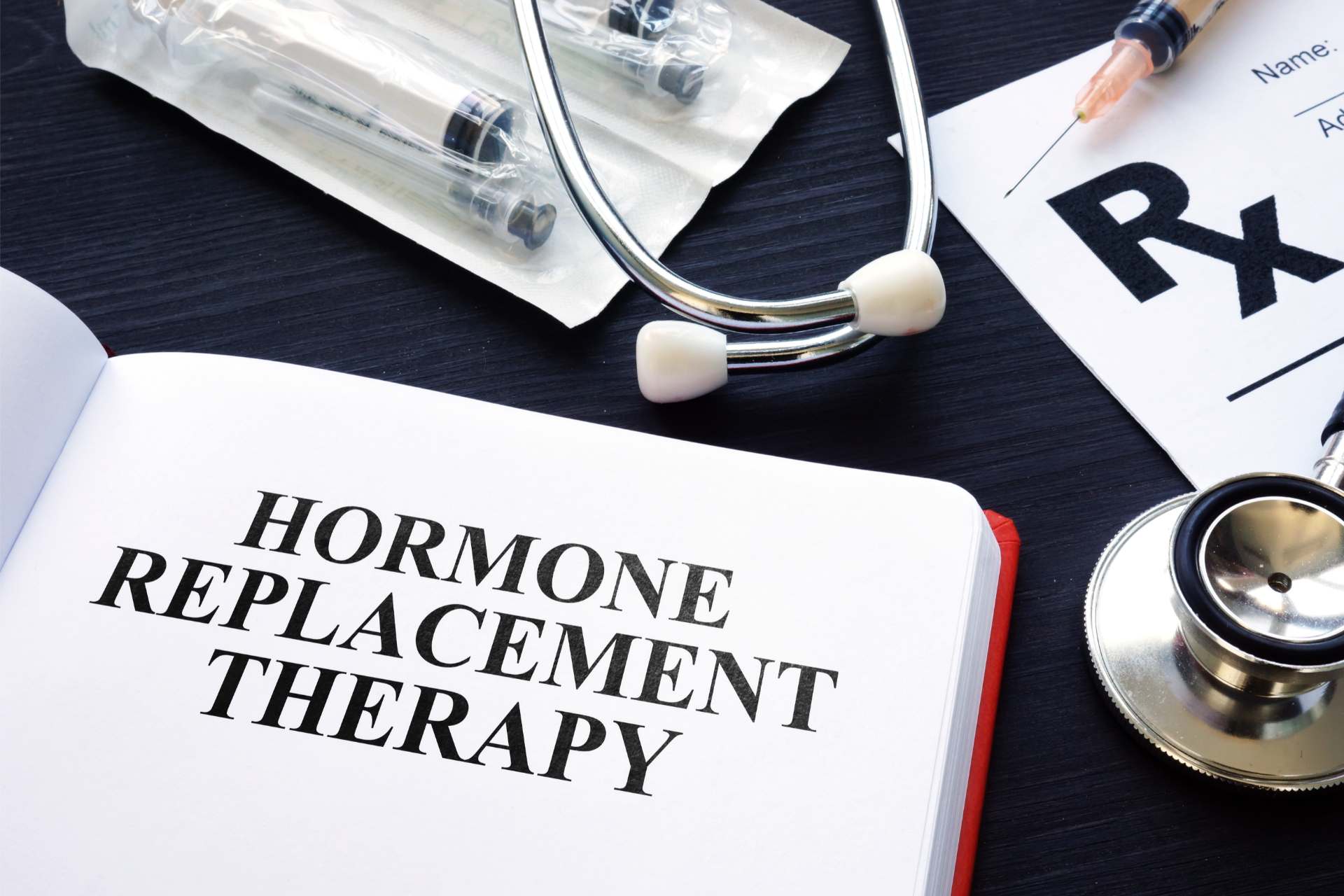Menopause is a natural phase in a woman’s life that typically occurs around the age of 50, although the timing can vary widely. This transitional period is due to hormonal fluctuations, often leading to symptomatic challenges that significantly affect the quality of life for many women. However, managing and embracing these changes doesn’t necessitate enduring discomfort, as there are various approaches to support a smoother transition through menopause. At Amber Wellness Group, we advocate for a holistic approach, incorporating a blend of medications, botanical medicine, and lifestyle recommendations. Our perspective is not merely to navigate this phase but also to promote health and disease prevention.
As menopause approaches and symptoms related to fluctuating and declining sex hormone levels arise, the topic of hormone replacement therapy (HRT) becomes relevant. These symptoms may include irregular periods, hot flashes, night sweats, vaginal dryness, insomnia, fatigue and mood swings, reduced mental cognition among many others. HRT involves the use of either synthetic or bioidentical hormones, mainly estrogen and progesterone, to restore hormonal balance during this transformative phase. These hormones are available in various forms, such as pills, patches, creams, gels, troches, and injections. Botanical medicine is an alternative to HRT that offers a non-hormonal approach to support hormonal balance.
HRT not only mitigates the unwanted symptoms of menopause but can also provide valuable health benefits as individuals age. FDA-approved for the prevention of bone loss, HRT may help reduce the risk of fractures. Estrogen also plays a pivotal role in brain health, and HRT is correlated with a reduced risk of cognitive decline. Research indicates that when HRT is initiated within the first 10 years of menopause, it is linked to a reduced risk of coronary artery disease. The cumulative positive impact of HRT on bones, brain, and heart underscores its many benefits in providing support to women navigating the menopausal transition.
When considering the use of HRT, one must consider the various types and forms of hormones. Synthetic HRT involves the use of hormones that are not structurally identical to the hormones naturally produced by the body. Synthetic hormones are prescribed for birth control and the most common synthetic hormones used in HRT include conjugated equine estrogens, such as Premarin, and progestins, such as Provera. Even though synthetic hormones have been effective at alleviating certain menopausal symptoms, the doses prescribed to manage symptoms of hot flashes, night sweats, and vaginal dryness are too high. Since the synthetic hormones used in this type of HRT are NOT identical to the body’s natural hormones, they can lead to unwanted side effects and do not provide the same cardiovascular and cognitive health benefits as bioidentical hormone replacement therapies.
Bioidentical hormone replacement therapy (BHRT) involves the use of hormones that are structurally identical to those produced by the human body. These hormones are typically synthesized from plant sources like soy or yams and are considered a more natural, safer option. With the results of the Women’s Health Initiative Study of 2003, we now prescribe the least amount of hormones that gives the best results. BHRT can be standardized prescriptions as well as compounded medications that are customized to an individual’s unique hormonal requirements, improving sleep, mood, libido, hot flashes, night sweats, vaginal dryness, memory, and more. There is a common misconception that bioidentical hormones are too costly for some because they are not covered by insurance, but there are BHRT products that are covered by insurance and available at a reasonable cost.
Botanical medicine involves the use of non-hormonal naturally derived compounds to help support hormone levels, mood and sleep. These plants have many actions in the body that work to support women through menopause. They can modulate estrogen to support hot flashes and night sweats, reduce inflammation, support adrenal function, improve mood and sleep. Botanical support is a wonderful option for those experiencing mild symptoms, are hesitant towards the use of HRT, or have a medical history that precludes the use of HRT, such as cancer. Individual response to botanical medicine can vary, and while many women find great benefit, those with severe menopausal symptoms may find more benefit from HRT.
The choice between synthetic, bioidentical, or botanical HRT should be made in consultation with a healthcare provider. Factors such as general health status, age, symptom severity, risk factors, lifestyle, and the risks and benefits of treatment all play a role in deciding on HRT. At Amber Wellness Group, we prioritize obtaining a comprehensive health history, conducting physical exams, and reviewing recent lab work before recommending HRT. Additionally, we like to regularly monitor and follow-up with our patients to ensure that the chosen HRT is effective and safe so that you can get back to living your best life!



